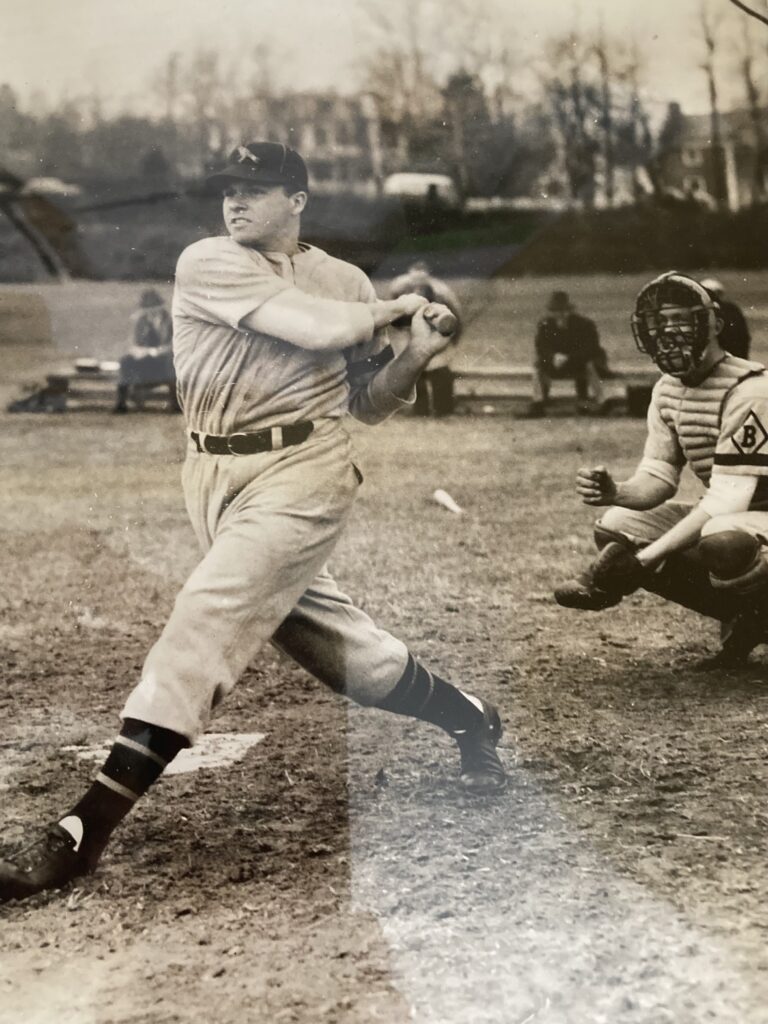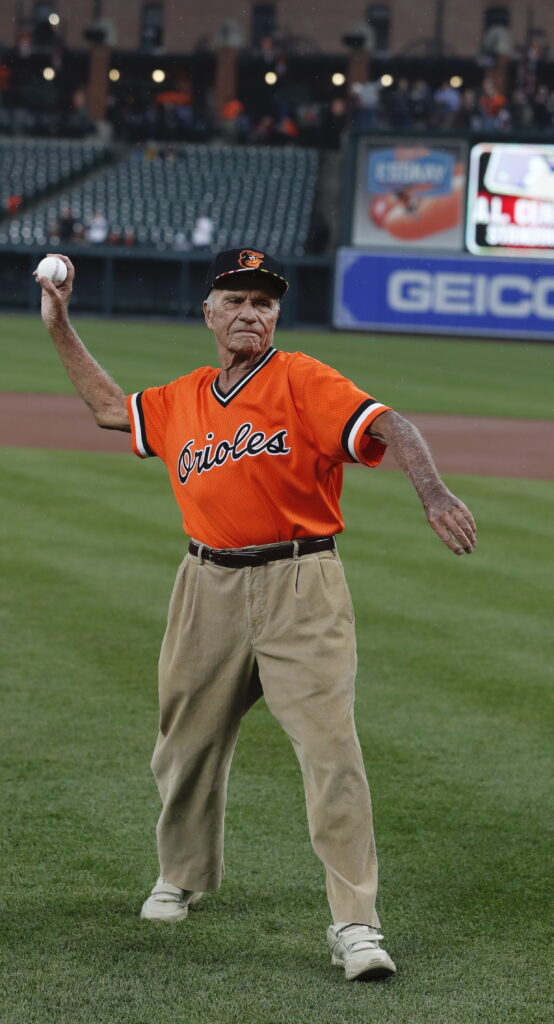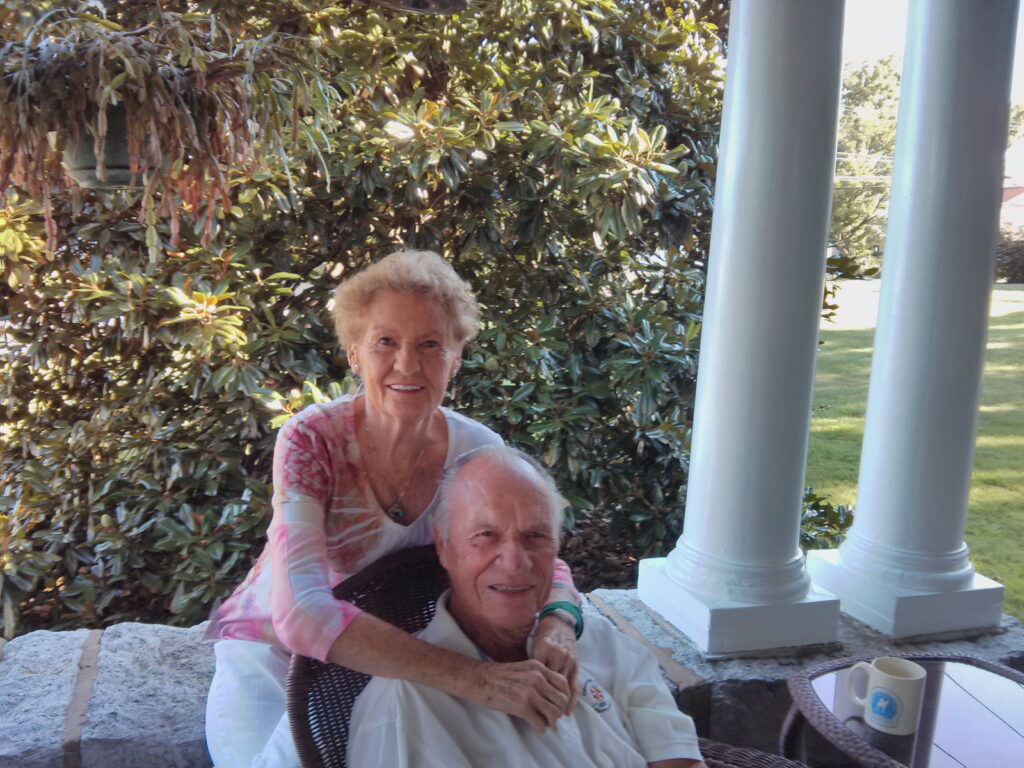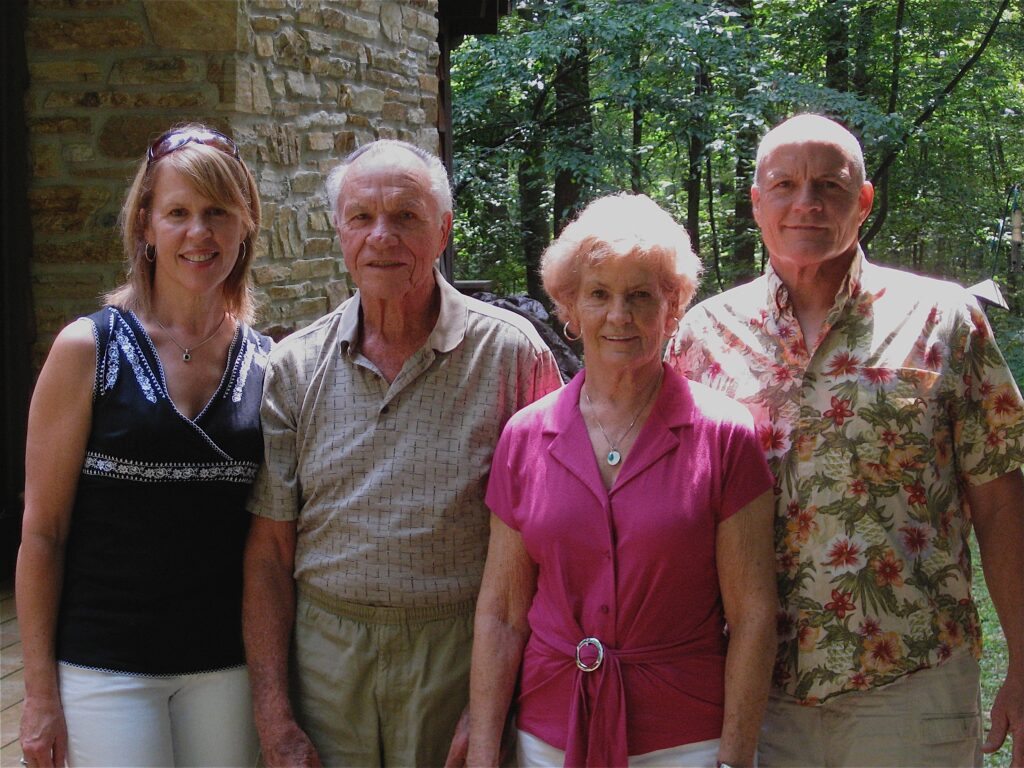A Life Well Lived, A Legacy Well Cared For: Remembering John W. “Bill” Dornbusch and His Journey with Gilchrist
A Lifetime of Dedication—From the Ballfield to the Bridge Table

Few lives are as rich in talent, service, and heart as that of John W “Bill” Dornbusch. Born and raised in Baltimore’s Brooklyn neighborhood, Bill was a true hometown hero. A baseball prodigy from a young age, he was drafted by the Orioles straight out of high school. “He lived and breathed baseball,” explains his daughter, Pam Dorgan. “Even when he was 12, he was playing with 16-year-olds—and was the best player on the team.”
His promising baseball career was interrupted by World War II, when he enlisted in the Navy and served as a gunner’s mate on a PT boat in the Pacific. “After the war,” Pam shares, “he played again for the Orioles for the 1946 season but then traded to a few other teams before hanging up his glove.”

Bill later transitioned to a career in pharmaceutical sales while remaining a devoted family man. He married Betty Ann Deuterman, and together they built a life rooted in love and resilience. Their marriage spanned 70 years, during which they raised two children—Pam and her brother, John Jr.—and eventually welcomed three grandchildren. The couple traveled often and cherished every season of family life.
Though he left professional sports, Bill’s competitive spirit never faded. In 1970, he was crowned the Maryland State Amateur Golf Champion at the Mount Pleasant Golf course. He also became a master bridge player, staying mentally sharp and socially active well into his 90s.
One of his proudest moments came at age 91, when the Orioles invited him to throw out the first pitch at Camden Yards on May 23, 2017. “You have regular days, and then you have days that live in your mind forever,” he told his son. “This is one of those days.”
Even at 98, Bill lived independently—still wearing his Orioles cap and playing bridge at the Cockeysville Senior Center. “He didn’t want to move into assisted living,” Pam recalls. “He was still quite independent at 92 when my mom passed. We made it work with companion care, and he got his wish to stay in his home for as long as possible.”
Answering the Call for Help
Bill’s final chapter began when Pam came for one of her regular visits from Connecticut. A sharp decline in his condition left him disoriented and in pain. “He went from a sharp mind to delirium in a matter of days,” she recalls. “A recent fall had left him with worsening back pain and a suspected head injury that had now reached a crisis point. I was trying to keep the faith, but I felt it slipping away.”

When Bill’s condition began to worsen, Pam knew exactly who to call. Just eight years earlier, she had turned to Gilchrist for support when her mother, Betty, was nearing the end of her life. “She had been declining with congestive heart failure and received hospice care at home with Gilchrist,” Pam explains. “The Gilchrist nurse was there with us when she passed away. She was kind, compassionate, and steady. It was such a relief not to be alone in that moment.” That experience left a lasting impression. So, when her father needed help, Pam once again reached out to Gilchrist—this time hoping only for a hospital bed and medication to ease his pain. “The emergency room was out of the question,” she reflects. “That’s not how either of us envisioned things.”
Within a day, a Gilchrist nurse arrived to assess the situation. Though the care center beds were full, a sudden opening appeared on the nurse’s computer. “Would you like your dad to go to Gilchrist?” she asked. “After two days of wondering if our last days together would be spent as patient and exhausted caregiver, the decision was easy,” Pam remembers. “From the moment he arrived, the angels descended. It was like being rescued. I could just be his daughter again—not his caregiver.”
Finding Peace at Gilchrist

John’s room at Gilchrist Center Towson opened onto a peaceful garden courtyard, where birds sang, and deer occasionally wandered by. “What a peaceful respite that sanctuary was,” Pam remembers. “Although Dad was sedated, I know he felt—and heard—the peace of nature around him.”
She also shares that music therapy brought unexpected comfort. “Even while sedated, he raised his eyebrows and squeezed my hand while Kelly, the music therapist, played his favorite songs,” she adds. “The nurses told me hearing is the last sense to go. I could see how much it meant to him.”
The staff—nurses, doctors, music therapists, and a social worker — brought warmth and dignity to his final days. “Words cannot express my gratitude for the loving care and comfort Dad received while at Gilchrist,” Pam acknowledges. “The Universe had given me the gift of being there—for both of us, it was the path forward.”
From Grief to Gratitude
Pam has found healing not only by remembering her father but also in small acts of giving. A chocolatier by hobby and heart, she now gifts her handcrafted chocolate as a gesture of appreciation, which she recently gifted to the staff at Gilchrist Center Towson. “Gilchrist is a magical place,” she shares. “It allowed us to say goodbye with love and dignity. That’s something I’ll carry with me forever.”
While Bill’s accolades on the baseball field and golf course are remarkable, what made him unforgettable was his warmth, humility, and the way he connected with others. His story is one of legacy, love, and the extraordinary peace that comes from compassionate end-of-life care. At Gilchrist, he wasn’t just a patient—he was a cherished father, a sportsman, and a man who made every moment count.
To learn more about Gilchrist, visit: https://gilchristcares.org/


